Peugeot 2008 VS Volvo XC40
In a head-to-head comparison between the Peugeot 2008 and the Volvo XC40, the stylish French crossover offers a more dynamic driving experience, appealing to those who prioritize agility and urban maneuverability. Meanwhile, the XC40 stands out with its robust safety features and premium interior, making it a strong contender for buyers seeking luxury and practicality in a compact SUV. Ultimately, the choice between these two models hinges on individual preferences for design, performance, and comfort.
Peugeot 2008
The Peugeot 2008 stands out in the compact SUV market with its blend of striking design and practical functionality. It offers a comfortable ride with a sophisticated interior that exudes quality, making it ideal for both urban commutes and longer journeys. The model's efficient performance and range of modern features further enhance its appeal to a diverse range of drivers.
detailsVolvo XC40
The Volvo XC40 is a standout model in the compact SUV segment, offering a delightful blend of Scandinavian design and practicality. Its interior is both stylish and functional, featuring premium materials and innovative storage solutions that make every journey comfortable. The car's performance is smooth and responsive, with advanced safety features ensuring peace of mind for drivers and passengers alike.
detailsIntroduction: A Clash of Compact SUVs
In the ever-expanding realm of compact SUVs, the competition is fierce. Two remarkable contenders are the Peugeot 2008 and the Volvo XC40, each of which brings unique features, distinct engineering, and fresh innovations to the table. This article takes a closer look at how these two vehicles stack up against each other in terms of performance, comfort, and technology.
Design and Dimensions: Style Meets Substance
The Peugeot 2008 boasts a modern and dynamic design, with a length of 4304 mm, a width of 1770 mm, and a height of 1523 mm. Its striking front-end design features sharp LED lights that give it an aggressive stance while ensuring visibility during night driving.
On the other hand, the Volvo XC40 presents a more robust appearance, measuring 4425 mm in length, 1863 mm in width, and towering at 1652 mm in height. The elegant lines and distinctive Volvo grille exude a sense of sophistication, aligning with the brand’s premium image.
Performance: Power and Efficiency
When it comes to performance, both vehicles offer a range of engine options. The Peugeot 2008 provides an array of powertrains, including petrol MHEV and electric options, with power outputs ranging from 101 HP to 156 HP. Acceleration is impressive, with the fastest variant achieving 0-100 km/h in just 8.3 seconds. It offers a respectable fuel consumption of 5 to 5.7 L/100km, making it a fuel-efficient choice.
In contrast, the Volvo XC40 comes equipped mainly with MHEV technology, offering power options from 163 HP to 197 HP. Its performance is slightly more robust with a quicker acceleration time of 7.6 seconds for the higher power variant. However, its fuel consumption is higher at around 6.5 L/100km.
Interior and Comfort: Practicality Meets Luxury
Inside, the Peugeot 2008 is designed with a focus on practicality and a user-friendly experience. The spacious cabin provides ample room for up to five passengers and boasts a trunk capacity of 434 liters, making it a suitable option for families or weekend adventures.
The Volvo XC40 takes a luxury approach with high-quality materials and modern design elements, providing a refined atmosphere. With slightly more trunk capacity at 452 liters and generous legroom, the XC40 prioritizes passenger comfort alongside practicality.
Technological Innovations: Features That Impress
Both vehicles showcase advanced technology, but their approaches differ. The Peugeot 2008 is equipped with the latest infotainment system featuring a touchscreen display, Apple CarPlay, Android Auto, and innovative driver assistance features. It integrates modern connectivity options, ensuring that drivers and passengers stay engaged throughout their journeys.
Volvo’s XC40, on the other hand, impresses with its intuitive tech suite, including a high-resolution touchscreen interface and the brand's proprietary safety features. It focuses heavily on driver assistance and safety innovations, giving drivers confidence behind the wheel.
Conclusion: Which SUV Reigns Supreme?
Both the Peugeot 2008 and the Volvo XC40 offer compelling reasons to consider them as your next compact SUV. The Peugeot 2008 excels in efficiency, innovative powertrains, and a stylish design, while the Volvo XC40 brings a premium feel, luxury features, and advanced safety technologies to the forefront.
Your choice will ultimately depend on what you prioritize in a vehicle: efficient performance or premium comfort. Regardless of your selection, both models embody the essence of modern SUV engineering poised to delight drivers in diverse ways.
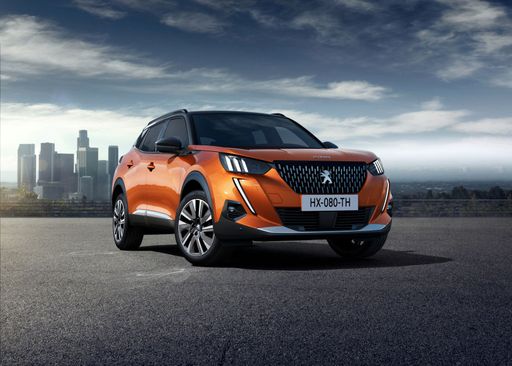 @ media.stellantis.com
@ media.stellantis.com
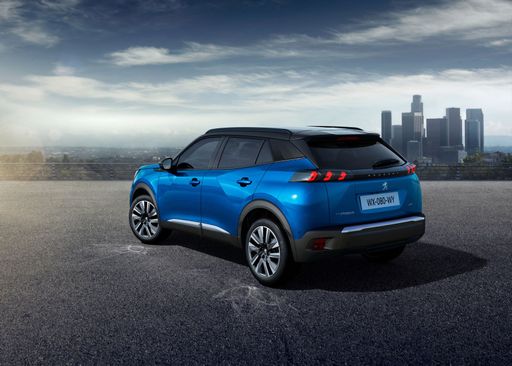 @ media.stellantis.com
@ media.stellantis.com
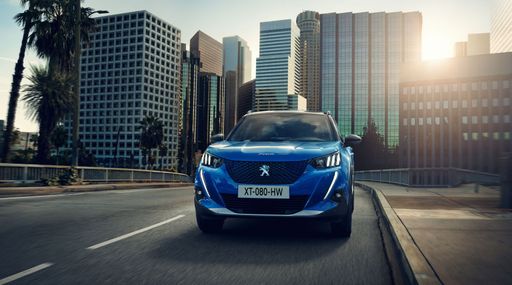 @ media.stellantis.com
@ media.stellantis.com
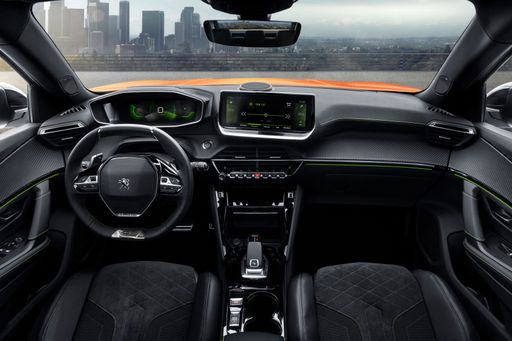 @ media.stellantis.com
@ media.stellantis.com
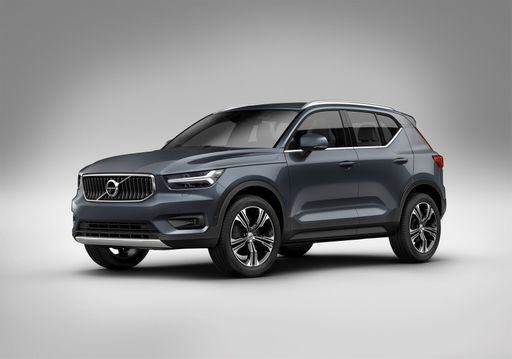 @ media.volvocars.com
@ media.volvocars.com
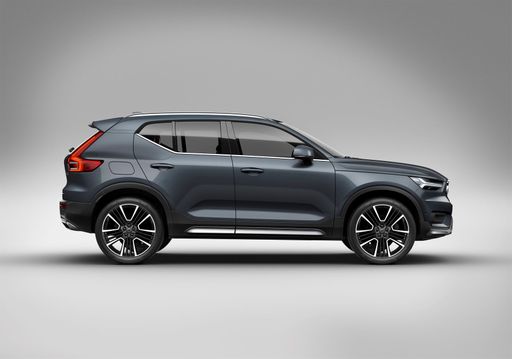 @ media.volvocars.com
@ media.volvocars.com
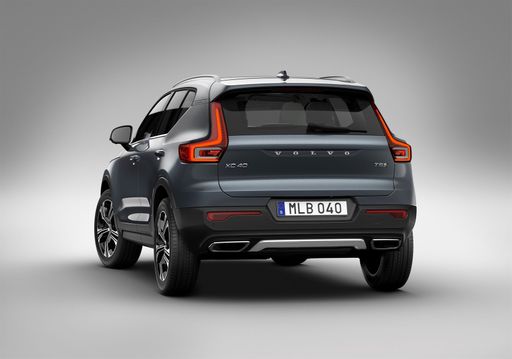 @ media.volvocars.com
@ media.volvocars.com
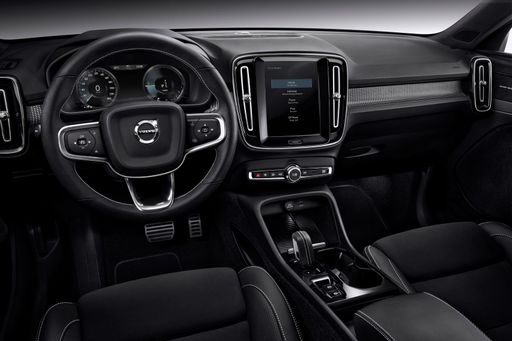 @ media.volvocars.com
@ media.volvocars.com
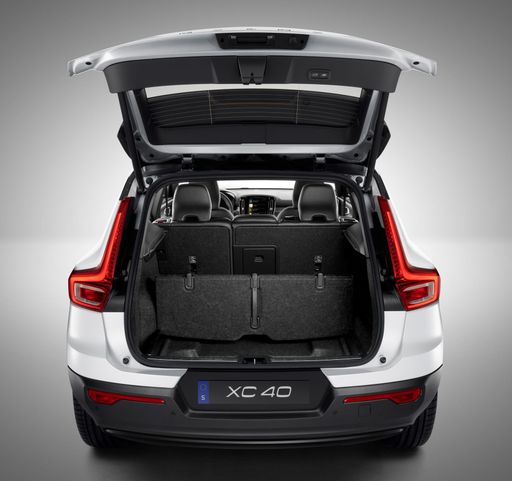 @ media.volvocars.com
@ media.volvocars.com

|

|
|
|
|
Costs and Consumption |
|
|---|---|
|
Price
about 25000 - 41200
$
|
Price
about 39300 - 49600
$
|
|
Consumption L/100km
5 - 5.7
L
|
Consumption L/100km
6.5
L
|
|
Consumption kWh/100km
15.5 - 15.9
kWh
|
Consumption kWh/100km
-
|
|
Electric Range
343 - 406
km
|
Electric Range
-
|
|
Battery Capacity
46 - 51
kWh
|
Battery Capacity
-
|
|
co2
113, 129, 0
g/km
|
co2
147 - 148
g/km
|
|
Fuel tank capacity
44
L
|
Fuel tank capacity
54
L
|
Dimensions and Body |
|
|
Body Type
SUV
|
Body Type
SUV
|
|
Seats
5
|
Seats
5
|
|
Doors
5
|
Doors
5
|
|
Curb weight
1263 - 1623
kg
|
Curb weight
1688
kg
|
|
Trunk capacity
434
L
|
Trunk capacity
452
L
|
|
Length
4304
mm
|
Length
4425
mm
|
|
Width
1770
mm
|
Width
1863
mm
|
|
Height
1523
mm
|
Height
1652
mm
|
|
Payload
407 - 447
kg
|
Payload
532
kg
|
Engine and Performance |
|
|
Engine Type
Petrol MHEV, Petrol, Electric
|
Engine Type
Petrol MHEV
|
|
Transmission
Automatic, Manuel
|
Transmission
Automatic
|
|
Transmission Detail
Automat. Schaltgetriebe (Doppelkupplung), Manual Gearbox, Reduction Gearbox
|
Transmission Detail
Automat. Schaltgetriebe (Doppelkupplung)
|
|
Drive Type
Front-Wheel Drive
|
Drive Type
Front-Wheel Drive
|
|
Power HP
101 - 156
HP
|
Power HP
163 - 197
HP
|
|
Acceleration 0-100km/h
8.3 - 10.9
s
|
Acceleration 0-100km/h
7.6 - 8.6
s
|
|
Max Speed
150 - 206
km/h
|
Max Speed
180
km/h
|
|
Torque
205 - 270
Nm
|
Torque
265 - 300
Nm
|
|
Number of Cylinders
3
|
Number of Cylinders
4
|
|
Power kW
74 - 115
kW
|
Power kW
120 - 145
kW
|
|
Engine capacity
1199
cm3
|
Engine capacity
1969
cm3
|
|
Top speed
150 - 206
km/h
|
Top speed
180
km/h
|
General |
|
|
Model Year
2023 - 2024
|
Model Year
2024
|
|
CO2 Efficiency Class
C, D, A
|
CO2 Efficiency Class
E
|
|
Brand
Peugeot
|
Brand
Volvo
|
Peugeot 2008
Introducing the New Peugeot 2008: A Blend of Style and Innovation
The new Peugeot 2008 is a standout vehicle in the compact SUV segment, combining dynamic styling with cutting-edge technology. Known for its versatility and impressive features, the 2008 offers more than just good looks. Let's delve into the technical nuances and innovative aspects that make this model a preferred choice among contemporary SUVs.
Engine Options and Performance
The Peugeot 2008 offers a variety of powertrain options to suit different driving needs. Whether you opt for the petrol Mild-Hybrid engine or the fully electric variant, each version delivers a unique driving experience. The engine range includes 1.2-litre petrol engines boasting up to 156 PS and an electric motor option offering the same power. With CO2 emissions ranging from 0 to 129 g/km and a top speed between 150 km/h to 206 km/h, the 2008 ensures efficiency without compromising on performance.
Advanced Technology and Features
The Peugeot 2008 is packed with innovative technology designed to enhance the driving experience. It includes an advanced infotainment system integrated with cutting-edge connectivity solutions. Drivers can enjoy a seamless connection to their digital life with features like smartphone compatibility, real-time navigation, and a configurable digital driver's display. Additionally, advanced driver-assistance systems provide enhanced safety and convenience, making every drive more reassuring.
Electric Powertrain: Embracing the Future
For eco-conscious drivers, the e-2008 variant offers an impressive electric range of 343 to 406 km, thanks to its efficient 46 to 51 kWh battery. With a consumption of just 15.5 to 15.9 kWh/100km, it stands out as an environmentally friendly option. The smoothness of its automatic transmission ensures a comfortable ride, while instant torque from the electric motor provides a thrilling driving experience.
Design and Practicality
Beyond its performance, the Peugeot 2008 flaunts a contemporary design that is both sporty and elegant. Its compact dimensions (4304 mm length, 1770 mm width, 1523 mm height) are accentuated by a streamlined profile and distinctive full LED headlights. Practicality isn't sacrificed either, with a spacious boot capacity of 434 litres and intelligent layout offering ample space for passengers and cargo.
Customisation and Comfort
The interior of the 2008 is crafted to offer comfort and luxury. With options ranging across different trim levels such as Allure, GT, and Style, customers can tailor their vehicle to their personal taste and requirements. High-quality materials and ergonomic seating ensure both driver and passengers travel in comfort, making even the longest journeys pleasant.
Value for Money
The Peugeot 2008 offers competitive pricing from €27,050 to €44,600, catering to a wide audience. With monthly costs ranging from €956 to €1,049 and an efficient cost per kilometre, it presents significant value for money. Its combination of style, technology, and practicality means it’s more than just a vehicle; it’s a smart investment.
In summary, the Peugeot 2008 stands as a remarkable choice in the SUV market, seamlessly blending style, technology, and efficiency. Whether you prioritise eco-friendliness, driving pleasure, or advanced tech features, the 2008 delivers on all fronts, making it a top contender for modern drivers.
Volvo XC40
Introduction: The Refined Volvo XC40
The Volvo XC40 is a testament to Swedish innovation and design, blending practicality with cutting-edge technology in the compact SUV segment. Aimed at drivers who value safety, comfort, and eco-conscious driving, the XC40 continues to uphold Volvo's reputation for engineering excellence. In this article, we'll explore the technical specifications and innovative features that make the XC40 a standout choice for modern drivers.
Power and Performance
Under the bonnet, the Volvo XC40 offers a range of mild-hybrid petrol engines, combining efficiency with a responsive driving experience. The power output ranges from 163 to 197 PS (120 to 145 kW), ensuring robust performance for both urban commuting and longer journeys. With a maximum torque of 265 to 300 Nm, the vehicle offers smooth acceleration, achieving 0-100 km/h in just 7.6 to 8.6 seconds, whilst maintaining a CO2 efficiency class of E.
Efficiency Meets Eco-Conscious Design
The mild-hybrid system in the XC40 effectively reduces fuel consumption, with an impressive average of 6.5 L/100km. The system recycles braking energy to charge the battery, reducing emissions to between 147-148 g/km without compromising on performance. This design aligns perfectly with Volvo's commitment to sustainable motoring.
Cutting-Edge Transmission
The XC40 is equipped with an advanced automatic dual-clutch transmission that seamlessly transitions through gears, enhancing both fuel efficiency and driving comfort. The integration of this technology underscores Volvo’s commitment to delivering an engaging yet smooth driving experience.
Sophisticated Interior Design
The interior of the XC40 reflects Volvo’s dedication to Scandinavian design aesthetics, featuring a spacious cabin with high-quality materials. The vehicle comfortably seats five passengers, with a versatile boot space of 452 litres, making it ideal for family outings or road trips. The intuitive infotainment system is seamlessly integrated, providing driver-friendly access to navigation, entertainment, and safety features.
Safety Innovations
Volvo’s renowned safety reputation is evident in the XC40’s comprehensive suite of safety features. Advanced driver assistance systems, including adaptive cruise control, blind-spot monitoring, and lane-keeping aid, ensure a secure driving environment. The XC40’s construction and technology adhere to Volvo's “Vision 2020” strategy, aiming for zero fatalities or serious injuries in new Volvo cars.
Conclusion: A Contemporary Choice
The Volvo XC40 stands out as a compact SUV that blends innovation, efficiency, and style. Its proactive approach to hybrid technology, coupled with Volvo’s trademark focus on safety and design, makes it a compelling choice for those seeking a blend of practicality and performance. Whether it’s the daily commute or a weekend getaway, the XC40 is engineered to deliver a dynamic and sustainable driving experience.
